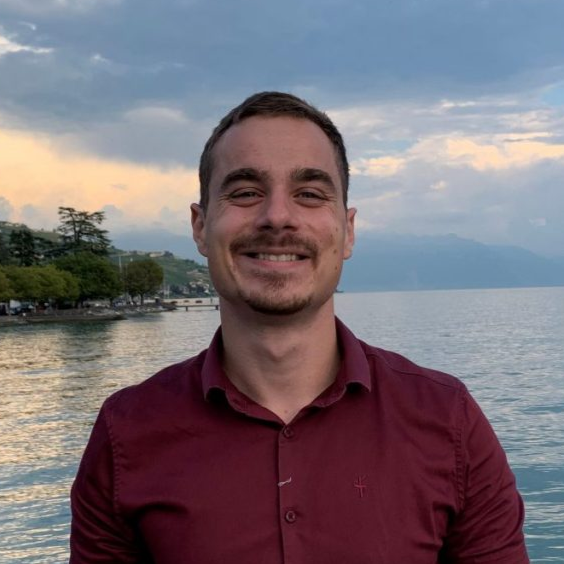Meet the speakers
Get to know the speakers that will talk at DS4S in Bern, on April 11th and 12th.




Thomas Schulthess studied physics at ETH Zurich, earning a doctorate in natural sciences in 1994. In 1995 he moved to the USA, working as a researcher in computational materials science and condensed matter physics. In 2008, Thomas made a return to ETH Zurich from Oak Ridge National Laboratory, where he is a professor of computational physics and director of the Swiss National Supercomputing Center (CSCS) located in Lugano.

Thomas Schulthess




Ryan Cotterell is a leading researcher in computational linguistics and natural language processing. Ryan has a bachelor’s degree and a PhD in Computer Science from Johns Hopkins University. He is currently a tenure-track assistant professor at ETH Zürich in the Department of Computer Science, where he is a member of the Institute for Machine Learning. He was previously a lecturer at Cambridge University and has done research stints at Google AI and Facebook AI Research.

Ryan Cotterell




Tom Beucler is an assistant professor of environmental data science at the University of Lausanne in Switzerland. He recently started a lab (https://unil.ch/dawn) specifically dedicated to the intersection of atmospheric physics and machine learning, with the goal of improving our understanding of atmospheric dynamics and assisting weather and climate predictions. For that purpose, his research group combines physical theory, computational science, statistics, numerical simulations, and observational analyses. Before that, Tom studied the interaction of tropical storms, radiation, and atmospheric water as part of his PhD at MIT. As a postdoc and project scientist at Columbia and UC Irvine, he investigated how to best integrate physical knowledge into neural-network representations of convection for climate modeling.

Tom Beucler




Prof. Martin Vetterli is the President of École Polytechnique Fédérale de Lausanne (EPFL) since January 2017. He is also a full professor at EPFL’s AudioVisual Communications Laboratory and an expert in the Swiss education and research landscape.
Martin Vetterli got his Electrical Engineering degree from ETH Zurich, a Master degree from Stanford University and his PhD from EPFL. He worked as a professor at Columbia University, at the University of California at Berkeley before joining EPFL as a full professor in 1995. He later served as EPFL’s vice president of international relations then of institutional affairs from 2004 to 2011, and as Dean of the School of Computer and Communication Sciences in 2011 and 2012, and, from 2013 to 2016, Prof. Vetterli was the president of the National Research Council of the Swiss National Science Foundation.
He works in the areas of electrical engineering, computer sciences and applied mathematics. His work covers wavelet theory and applications, image and video compression, self-organized communications systems and sensor networks, as well as fast algorithms, and has led to more than 200 journal papers, as well as about 50 patents or patent applications.

Martin Vetterli




Dr. Katrin Crameri, MPH, is the Director of the Personalized Health Informatics (PHI) Group at the SIB Swiss Institute of Bioinformatics. Katrin leads the Data Coordination Center of the Swiss Personalized Health Network (SPHN) and thus is responsible for the technical implementation of key milestones of the SPHN initiative aiming to improve secondary usage of health data in Switzerland.
One major focus of Katrin’s group is on FAIRification of routinely collected and biological health data to make it usable and sharable for research purposes, with a strong attention on data interoperability.
In addition, Katrin is heading the BioMedIT Board and in charge of the establishment and provision of a secure and protected IT infrastructure for transfer, storage, processing and analysis of confidential research data.
Katrin is passionate about improving the framework for biomedical research in Switzerland and is committed to better research for better health.

Katrin Crameri




Since 2019, Prof. Dr. Joël Mesot has been President of ETH Zurich. As a trained physicist, he performed most of his research on quantum materials at the large-scale facilities of the Paul Scherrer Institute, where he was director for 10 years. Mesot studied physics at ETH Zurich and earned his doctorate with a thesis on high-temperature superconductors. He spent several years researching abroad, including at the Institut Laue-Langevin in France and at Argonne National Laboratory in the USA. Since 2008, he is a full professor of physics at ETH. He received several awards for his scientific achievements.
In his current role as president of ETH Zurich, he chairs the Executive Board and bears legal and political responsibility for the institution. ETH Zurich is regularly ranked among the world’s leading universities.

Joël Mesot




Dr. Oksana Riba Grognuz leads the Open Research Data (ORD) Engagement & Services at the Swiss Data Science Center. Her team develops innovative solutions that support research communities across the ORD lifecycle. To address growing demand, she has spearheaded initiatives in ORD platform development, advancing the adoption of FAIR principles and promoting privacy-centric data governance within the Swiss research landscape. A key example is her work in establishing the first industry-grade national data stream infrastructure in Switzerland for the Low-Value Care in Hospitalized Patients (LUCID) project. This collaborative effort with the SPHN Data Coordination Center serves as a benchmark for other National Data Streams.

Oksana Riba Grognuz




Angelika Kalt has a PhD in earth sciences and was professor of petrology and geodynamics at the University of Neuchâtel between 2000 and 2008. In 2008, she joined the SNSF as Deputy Director. Her main tasks in this role were quality assurance, developing evaluation methods and improving research funding schemes. Angelika was appointed Director of the Swiss National Science Foundation (SNSF) in 2016. She leads the Administrative Offices of the SNSF and is mainly concerned with strategic and political issues and national and international institutional relations. In 2022 and 2023, Angelika was elected vice president of Science Europe. This year, she is President of Switzerland’s Open Research Data Strategy Council.

Angelika Kalt

Plan your day at the Data Science conference
Dive into the meticulously crafted schedule that awaits, filled with enlightening keynotes, engaging workshops, and thought-provoking sessions!




.png)
